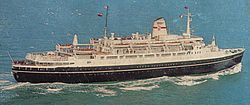- This article is about Stefan Báthory, the king of Poland. For more information on his father, also named Stephen (István) see: István Báthory
| Stefan Batory | ||
 | ||
| Reign | From December 9, 1575 until December 12, 1586 | |
| Elected | On December 9, 1575 in Wola, today suburb of Warsaw, Poland | |
| Coronation | On May 1, 1576 in the Wawel Cathedral, Kraków, Poland | |
| Noble Family | Bathory | |
| Parents | Stephen Bathory Catherine Telegdi | |
| Consorts | Anna Jagiellonka | |
| Children | none | |
| Date of Birth | September 27, 1533 | |
| Place of Birth | Somlyo, Transylvania (now Romania) | |
| Date of Death | December 12, 1586 | |
| Place of Death | Grodno, Poland, (now Belarus) | |
| Place of Burial | Wawel Cathedral, in Kraków, Poland buried in May, 1588 | |
Stefan Báthory (1533-1586) was a Prince of Transylvania, King of Poland and Grand Duke of Lithuania.
He was born as István Báthory to a mighty Hungarian noble, also named István Báthory. Báthory succeeded John II Zapolya as Prince of Transylvania, and held this position during 1571-1575, giving it to his older brother Christopher Bathory (1530-1581) afterwards. In 1575 he was elected King of Poland and ruled the Polish-Lithuanian Commonwealth as Stefan Batory.
Biography
Stefan was elected to become King of Poland, after Henry III of Valois fled Poland to become King of France. He married Anna the Jagiellonian, daughter of King Sigismund I the Old.
The Hanse city of Gdańsk (German:Danzig) had backed Emperor Maximilian II in his attempt to become King of Poland. Stefan Báthory, upon becoming King of Poland, attacked Gdańsk and tried to take it by military force. Báthory was able to defeat Gdańsk's mercenary army in open field, but he was unable to take the city; so compromise was reached.
Báthory had to accept that Gdańsk continued to hold some of its privileges and the city recognised him as ruler of Poland and paid an enormous sum in gold as an "apology". Báthory confirmed the privileges of Gdańsk in 1577. Gdańsk later was loyally serving the Kingdom during the war with Sweden and Russia, providing help when requested.
Báthory, with his chancellor Jan Zamojski, led the Polish army in a brilliant decisive campaign against the Baltic invaders of Ivan "the terrible" Vasleivich. The Russians had invaded Livonia and took Dorpat from the Polish vassal, the Teutonic Brothers of the Sword (more commonly referred to as the Teutonic Knights). The Poles under Báthory routed the Russian force at Wielkie Luki but was unable to capture Pskow, the objective of the campaign. In the Peace treaty in Jam Zapolski, Poland got back Livonia and Polock.
.
Stefan Báthory planned a Christian alliance against the Ottomans. He proposed an anti-Ottoman alliance with Russia, which he considered a necessary step for his anti-Ottoman crusade. However, Russia was on its way to the Time of Troubles, so he could not find a partner there. When Stefan Báthory died, there was a one year interregnum.
Emperor Mathias's brother Maximilian III tried to claim title of King of Poland, but was defeated at Byczyna, and Sigismund III Vasa followed Stefan Báthory's reign.
See also